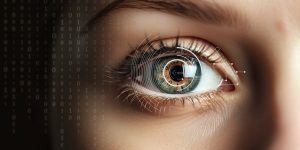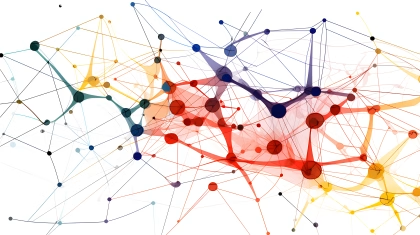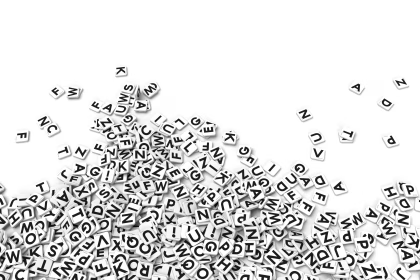What is Autobiographical memory? Take a second to remember a specific point in your life. It can be anything that you have attributed significance to; your first time on a stage, the loss of a family member, or the first time you fell in love. There can be a lot of information in these recollections. This information can be about how you felt, what the weather was like, what you were wearing, and anything else that you might have paid attention to when the memory happened.
These self-perspective memories are important because each and every one of us is the agent of our own actions in the world, that is to say, we perceive the world in relation to our own place in it. In short, autobiographical memory refers to the memories of our personal experiences and events in our lives, as well as our relationship to events happing around us. It is the type of memory that enables us to recall specific details of what we did, what we felt, and what happened at a certain moment in time.

Our brains are fallible memory banks
Autobiographical memory is a complex and sophisticated system, and it is an essential aspect of our identity. It helps us to recall our past experiences, maintain relationships, and plan for the future. Our autobiographical memories also shape how we perceive and interpret our current experiences, which is why it is so critical to our overall well-being and mental health.
The process of autobiographical memory recall involves the activation of specific brain regions, including the hippocampus and the amygdala. The hippocampus plays a crucial role in the formation and retrieval of memories, while the amygdala is involved in the emotional processing of experiences. However, the system is not infallible. In some instances, the brain’s ability to recall memories accurately can turn out to be detrimental to our mental health.
A very interesting aspect of autobiographical memory is that it is not always accurate. Our memories can change over time, and our recall of events may be influenced by our emotions, beliefs, and other factors. This phenomenon is known as “memory distortion.” For example, patients suffering from a traumatic brain injury often have trouble placing themselves in the past and remembering things from a self-perspective (1).
People not suffering from mental or physical trauma can also be the subjects of memory distortion. They may remember an event as being more positive or negative than it actually was, or they may forget certain details of an experience and fill in the gaps with what they believe happened. Many of us have most likely tried to talk to people who knew us as children, who remember things from our formative years very differently from us.

Additionally, our autobiographical memory can also be influenced by the way we encode or store information. For example, if we focus on the emotional aspects of an event, we may remember the experience differently than if we focus on factual details. This is a central implication in the development of disorders such as PTSD, which we will touch upon in the next chapter.
Not only does autobiographical memory play a critical role in our lives, shaping our perceptions and understanding of the world around us, but it is also the thing that anchors us in our past, allowing us to maintain relationships and plan the future.
Although it is not always accurate, it is an essential aspect of our identity and helps us to recall our past experiences, navigate our current formation of new experiences, and make us able to plan for future ones. Because of the significance of autobiographical memory in our lives, it is also something that can cause havoc in the lives of people who for some reason, cannot recall memory due to trauma or mental illness.
Autobiographical memory and mental illness
Autobiographical memory and its relationship with mental illness is a crucial topic in the field of psychology and neuroscience. Our personal experiences and the memories we have of them play a significant role in our overall mental health and well-being.
People with certain mental illnesses, such as depression, anxiety, and post-traumatic stress disorder (PTSD), often experience difficulties with their autobiographical memory. For example, individuals with depression may have a negative bias in their recall of past events, which can lead to a persistent sense of sadness and hopelessness. Similarly, individuals with PTSD may have intrusive, emotionally-charged, and distressing memories of traumatic events, which can significantly impact their daily lives.

On the other hand, some mental illnesses can also lead to changes in the structure and function of the brain regions involved in autobiographical memory, such as the hippocampus. For example, studies have shown that individuals with schizophrenia have structural changes in the hippocampus, which may contribute to their memory difficulties (2). Researchers have found that parts of the hippocampus can be significantly smaller in schizophrenic brains, which was suggested to be associated with inaccurate memory formation (3).
Autobiographical memory is closely linked to mental health, and difficulties with this type of memory can have significant consequences for individuals with mental illness. Understanding the relationship between autobiographical memory and mental illness is crucial for the development of effective treatment strategies and for improving the quality of life for those affected.
Free 52-page Human Behavior Guide
For Beginners and Intermediates
- Get accessible and comprehensive walkthrough
- Valuable human behavior research insight
- Learn how to take your research to the next level

References
- Cristofori I, Levin HS, Traumatic brain injury and cognition, Handbook of Clinical Neurology 2015, Pages 579-611, doi.org/10.1016/B978-0-444-63521-1.00037-6.
- Karlsgodt KH, Sun D, Cannon TD. Structural and Functional Brain Abnormalities in Schizophrenia. Curr Dir Psychol Sci. 2010 Aug; 19(4): 226-231. PMID: 25414548; PMCID: PMC4235761. https://www.ncbi.nlm.nih.gov/pmc/articles/PMC4235761/
- Heckers S, Konradi C. Hippocampal neurons in schizophrenia. J Neural Transm (Vienna). 2002 May;109(5-6):891-905. doi: 10.1007/s007020200073. PMID: 12111476; PMCID: PMC4205576. https://www.ncbi.nlm.nih.gov/pmc/articles/PMC4205576/










